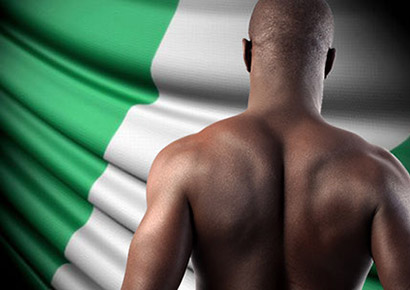Counting the cost of Nigeria’s anti-LGBT law
 Human Rights Watch has warned that Nigeria’s 2013 anti-gay law has made a bad situation much worse for the country’s beleaguered LGBT community.
Human Rights Watch has warned that Nigeria’s 2013 anti-gay law has made a bad situation much worse for the country’s beleaguered LGBT community.
The law, the Same Sex Marriage (Prohibition) Act (SSMPA), has led to an increase in extortion and violence against LGBT people and imposed restrictions on nongovernmental organisations providing essential services to LGBT people in Nigeria.
According to an 81-page report, ‘Tell Me Where I Can Be Safe’: The Impact of Nigeria’s Same Sex Marriage (Prohibition) Act, the law, which took effect in January 2014, is used by some police officers and members of the public to legitimise abuses against LGBT people, including widespread extortion, mob violence, arbitrary arrest, torture in detention, and physical and sexual violence.
“The Same Sex Marriage (Prohibition) Act effectively authorises abuses against LGBT people,” commented Wendy Isaack, LGBT rights researcher at Human Rights Watch. “While Human Rights Watch found no evidence that anyone has been prosecuted under the SSMPA, its impact has been far-reaching and severe.”
The report is based on in-depth interviews conducted between October 2015 and April 2016 with 73 LGBT people and 15 representatives of Nigeria-based nongovernmental organisations in Abuja, Lagos, and Ibadan.
Some of the incidents reported include:
- In January 2014, police raided an HIV awareness meeting in Abuja and arrested 12 participants on suspicion of “promoting homosexuality.” They were detained in police custody, without charge, for three weeks, before paying a bribe of 100,000 Naira (approximately $318) to secure their release.
- In February 2014 in Gishiri village, Abuja, a group of approximately 50 people armed with machetes, clubs, whips, and metal wires dragged people from their homes and severely beat at least 14 men whom they suspected of being gay.
- In November 2014, in Cross River State, a young woman was visiting her girlfriend when three men, neighbours, arrived at the house and raped her.
- In January 2015, Jason, a gay man in Lagos, met a man through a mobile phone dating app, and, after chatting with him, went to meet him at a hotel. However, once Jason entered the hotel room, six men barged in and began beating him. They gang raped him over three days. The men also forced him to hand over his bank card and PIN number, and then withdrew 45,000 Naira (approximately $148) from his account.
- In June 2015, Isaac was beaten by five or six men in his Abuja neighbourhood. They accused him of being gay.
- in July 2015 Rodney, was violently attacked by a group of eight men, who were “shouting that because I’m gay, I should leave the neighbourhood.” After the attack, Rodney went to the police but they refused to help because he is gay.
Former President Goodluck Jonathan passed the law, even though same-sex activity between consenting adults was already illegal (with penalties including 14 years imprisonment) and despite activists not actually advocating for the legalisation of same-sex marriage.
The law provides for prison terms of 14 years for anyone who enters a same-sex marriage or civil union and is so vague that “civil union” could include any form of intimate co-habitation. The law also punishes establishing, supporting, and participating in gay organisations and public displays of affection with 10 years in prison.
“Basically, because of this law the police treat LGBT people in any way that they please,” said an Abuja-based leader of a nongovernmental group. “They torture, force people to confess and when they hear about a gathering of men, they just head over to make arrests.”
Punitive legal environments, stigma, and discrimination based on sexual orientation and gender identity, together with high levels of physical, psychological, or sexual violence against gay men and other men who have sex with men, impedes sustainable national responses to HIV, Human Rights Watch found.
When officials or national authorities, including law enforcement officials, condone and commit violence, it leads to a climate of fear that fuels human rights violations. The fear also deters gay men and other men who have sex with men from seeking and adhering to HIV prevention, treatment, care, and support services.
The law contravenes basic tenets of the Nigerian Constitution and violates several human rights treaties that Nigeria has ratified, said Human Rights Watch. In November 2015, the African Commission urged the Nigerian government to review the law, to prohibit violence on the basis of sexual orientation and gender identity, and to ensure access to HIV prevention, treatment, and care services for LGBT individuals.
Human Rights Watch called on the Nigerian government and law enforcement officials to protect LGBT people from violence and abuse and for the government to repeal provisions of the Same Sex Marriage (Prohibition) Act that criminalise forming and supporting LGBT organisations.
“LGBT people in Nigeria are not advocating for same-sex marriage, but they want the violence to stop and for human rights defenders and organisations that provide services to LGBT people to be able to operate without fear,” Isaack said. “Nigeria should respond to the African Commission’s recommendation to review the law, rather than remaining silent about the human rights abuses LGBT people are facing.”
Leave a Reply